Flashback to the Galileo Hackathons in Southeast Asia
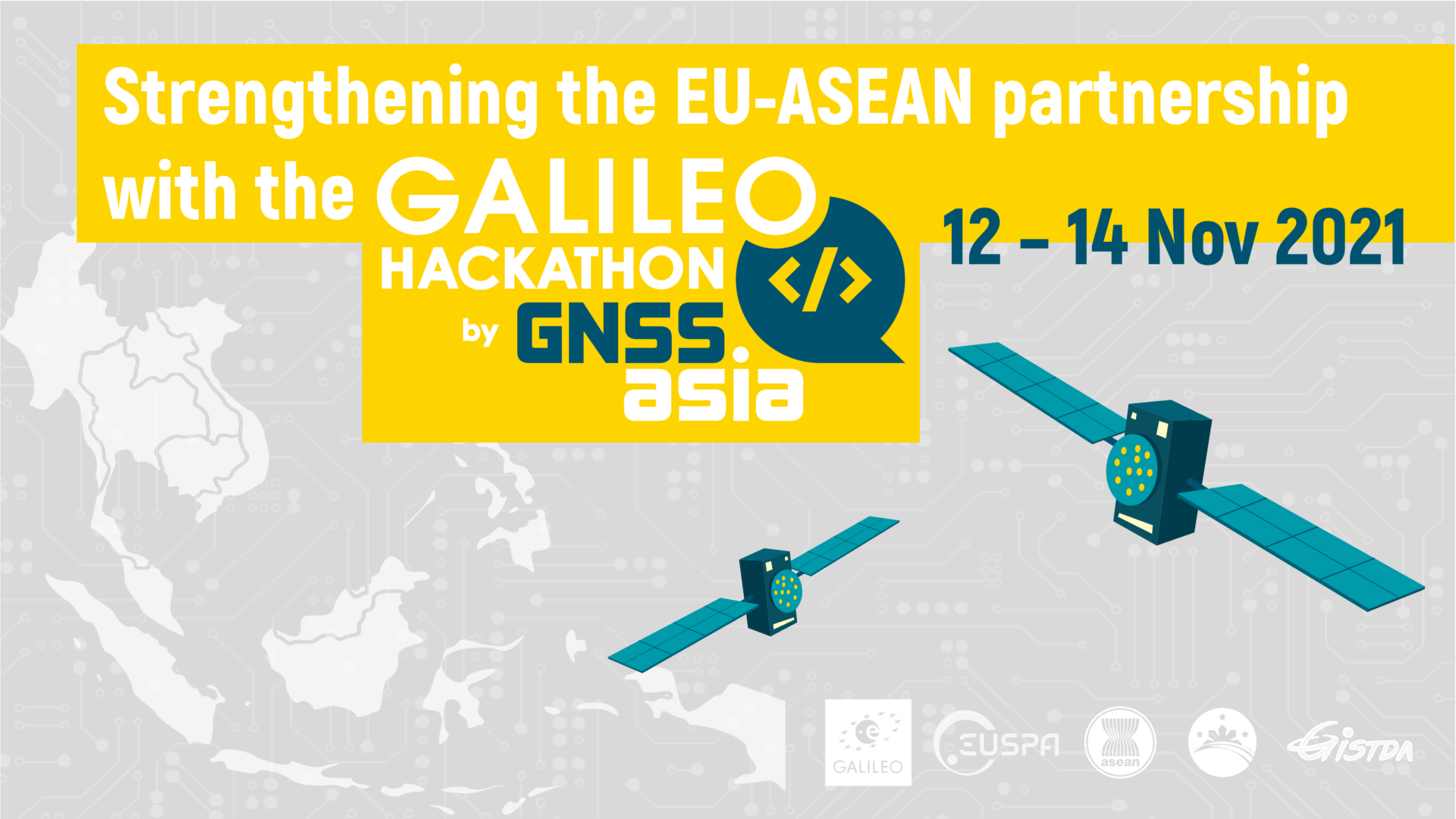
This weekend, from 12 – 14 November, the virtual edition of the Galileo Hackathons took place with support of the European Union Agency for the Space Programme (EUSPA), the European Commission (EC) and the Association of Southeast Asian Nations (ASEAN).
The Galileo Hackathons consisted of three different Hackathons happening in parallel, the open ASEAN Galileo Hackathon, the Galileo Hackathon in the Philippines supported by the Philippine Space Agency (PhilSA) and the Galileo Hackathon in Thailand supported by the Geo-Informatics and Space Technology Development Agency (GISTDA). Each Hackathon invited participants from all ASEAN member states to take part in an innovation competition that sought out the most advanced and creative applications of Galileo, the European Global Navigation Satellite System (GNSS), in the context of four different challenges.
| This was the first time, the Galileo Hackathon was held in a virtual setting. Although we would have loved to meet all the talented innovative minds in person, a virtual Hackathon has presented us with a unique opportunity to unite people from all over Southeast Asia and make this the biggest Galileo Hackathon yet. In total, 236 participants from 10 different countries registered to be a part of the exciting weekend and we ended up with 31 active Teams consisting of 123 Hackers across the 10 countries. | 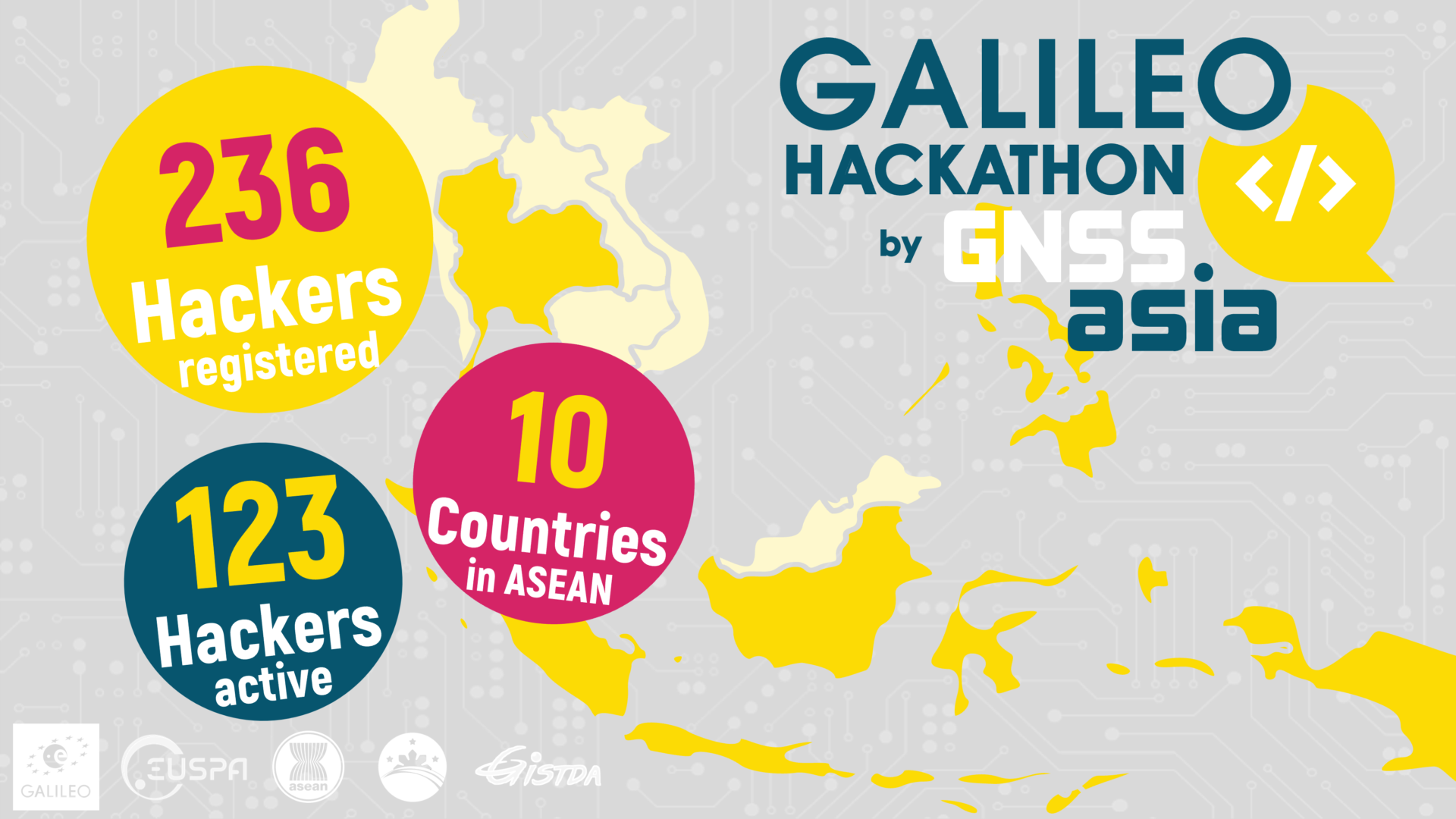 |
The Opening Ceremony
On Friday, the Hackers were officially welcomed by our distinguished panel of speakers Igor Driesmans, the Ambassador to ASEAN, Lim Jock Hoi, the Secretary General of the ASEAN, Prof. Sirirurg Songsivila, the Chairman of COSTI and David Daly, the Head of the EU Delegation to Thailand as well as the local organisers represented by Ariel C. Blanco, the Director of PhilSA Space Infrastructure Bureau, Tatiya Chuentragun, the Deputy Executive Director to GISTDA and Rainer Horn our Global cordinator at GNSS.asia.
Their speeches highlighted the role of the Galileo Hackathons within the context of the EU-ASEAN Strategic Partnership and how it strengthens the EU-ASEAN cooperation on science & technology, education, inclusion and economic development. Moreover, the potential of EU Space for Southeast Asia was presented by Martin Sunkevic, representative of EUSPA.
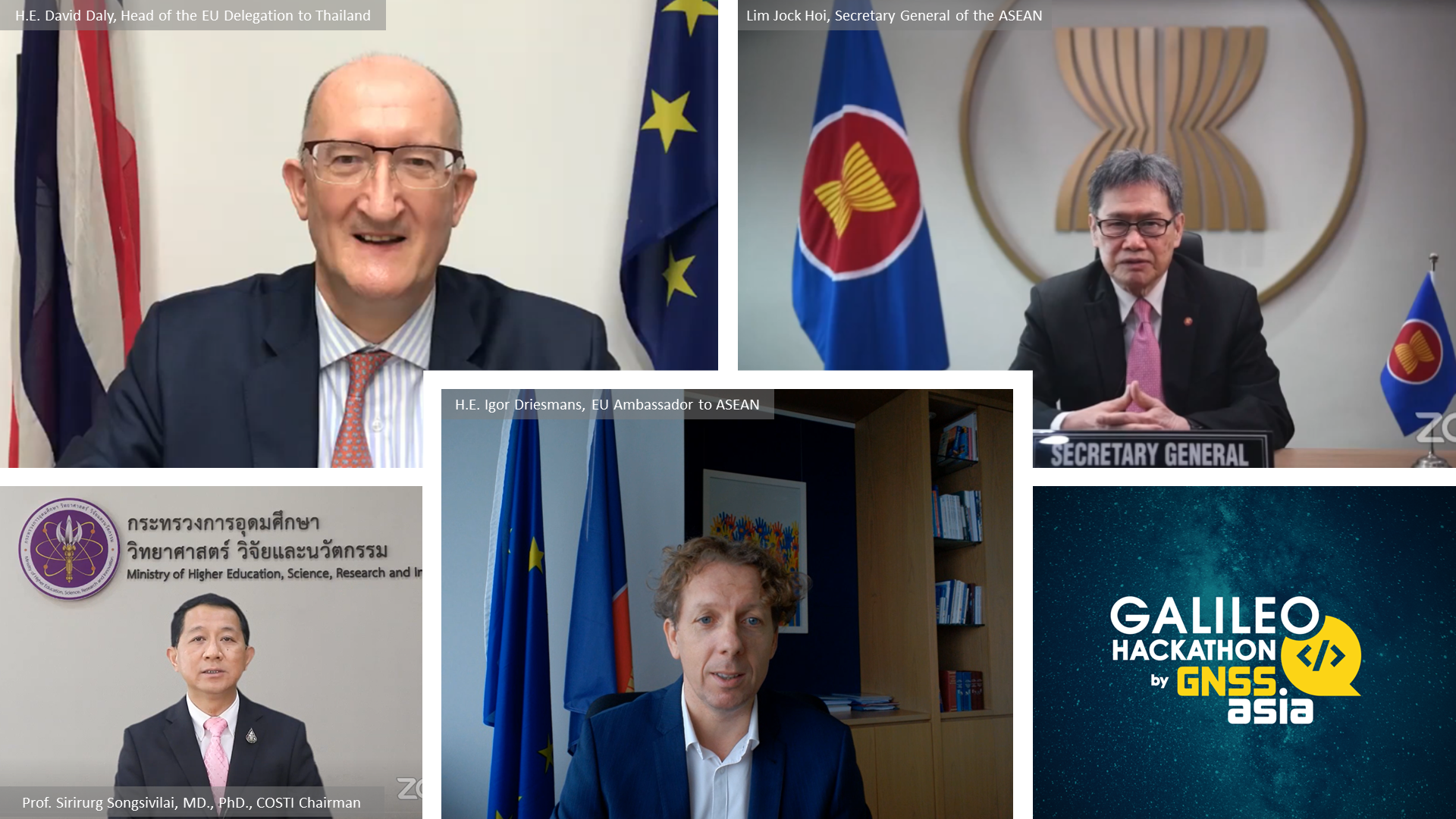
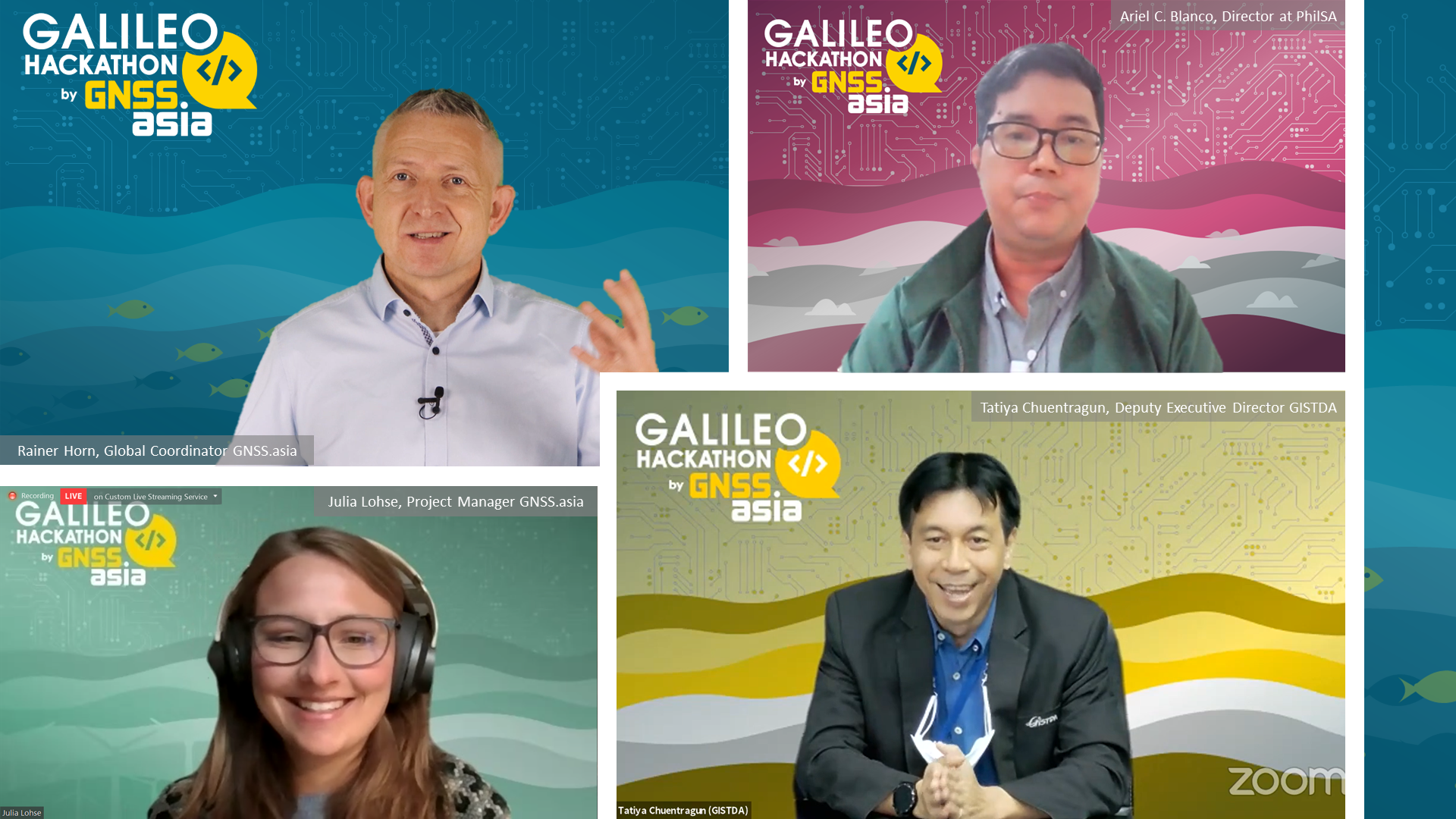
The Hackathon Saturday
After most teams went through the ideation stage on Friday, Saturday was where the main action happened within the projects. To support that, 25 Mentors were available for questions and guided the Hackers in their process. The Mentors were a mix of Experts from Southeast Asia and Europe and were available for the Teams to ask questions about anything from Business Planning to the technical details of the Galileo High-Accuracy Service (HAS). Throughout the weekend, the participants were also able to listen to 15 different presentations about Galileo and all of its application possibilities to broaden their understanding and get inspiration for opportunities in ASEAN.
The Award Ceremony
Out of the 31 Teams that tackled the challenges, 24 made it to the finish line and delivered their projects. 9 submissions targeted the emergency challenge, where most projects tried to develop a solution for first responders and rescue units while a few also looked at disaster prevention and preparedness as well as fire fighting in particular. The second challenge focused on applications for environmental challenges and had a total of 5 submissions focussing on fighting deforrestation and climate change as well as improving waste management and recycling. Another 4 submissions focussed on solutions to protect life below water, ensuring responsible and sustainable fishing practices and improving port managent in order to tackle the maritime challenge. The tourism & cultural heritage challenge had a total of 6 submissions that sought solutions to manage tourist capacity and protect cultural heritage while keeping it accessible to the world.
All four challenges were tailored to attack struggles that are highly relevant in Southeast Asia and solutions to which will also aid in supporting the Sustainable Development Goals (SDG) set by the United Nations General Assembly.
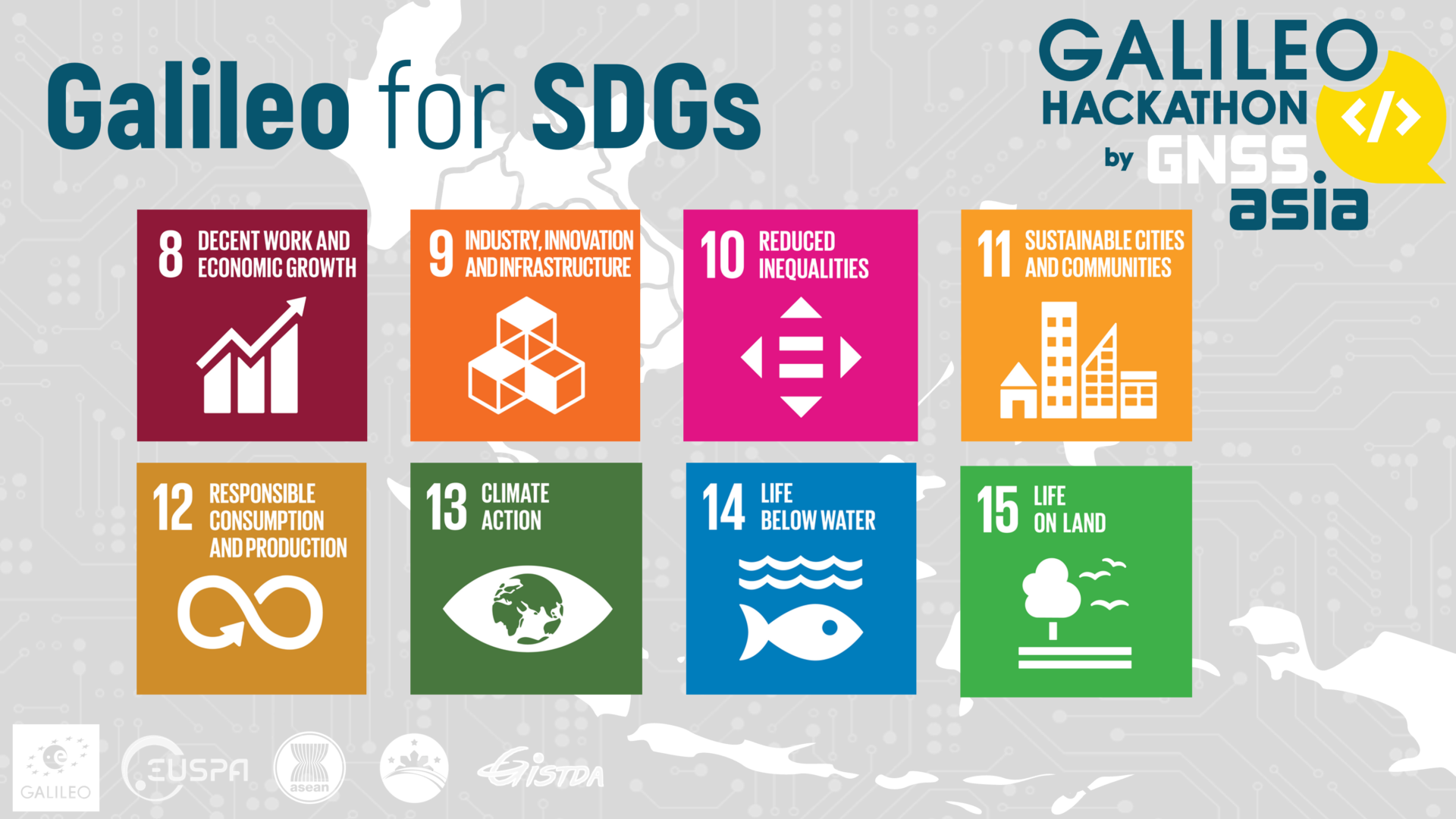
Our 20 Judges then had the exciting task to pick the top three projects for each of the Hackathons to finally congratulate three winners. The first places received 2,000 EUR, the second places 1,000 EUR and the third places 500 EUR.
The first price in the open ASEAN Galileo Hackathon was given to project LiLA. The Team developed a mobile application that bridges people and the environment and is aiming to be a one-stop hub for tree planting event organisers and volunteers. The Thailand Galileo Hackathon chose project LodeStar as a winner of the competition. They came up with an application that is aiming at solving the tourist capacity problem while still keeping the reveue stream in tact. A very impressive contribution won the first price in the Philippine Galileo Hackathon. Project SAKLOLO created a working prototype throughout the weekend that leverages GNSS with an emergency power system for survivor geopositioning during maritime and natural disasters.
The weekend stood under the sign of cooperation for innovation in Europe and ASEAN and we want to thank everyone who contributed to making a great success! If you would like to see more impressions from the weekend have a look at our Hackathon platform where you can check-out all the projects and watch the opening and award ceremony on YouTube.